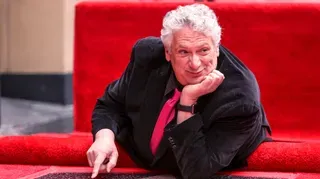March 17, 2010
Atlanta :: America's Gayest City?
Jack Mauro READ TIME: 7 MIN.
Pinker than Burlington, VT. Queerer than Asheville, NC, and way more rainbow than New Orleans, Atlanta, proud citizens, was selected in the February Advocate as the gayest of American cities. On your knees, San Diego and Austin. And hand up that tiara if you please, WeHo.
Of course the Internet is ablaze with scorn, disbelief and truckloads of evidence refuting Mike Albo's article in the Advocate and the statuses awarded therein, from envious gays in El Paso, from usurped dowager queens of San Francisco, from queers in smaller towns everywhere. They feel shortchanged and ignored, and their collectively injured gay civic pride hollers out. Joe Eskenzi of SF Weekly takes a sour-grapist stance, insulted but certain that his city is just too big in a gay way to worry about silly little lists. Atlanta's own AJC, on the other hand, takes the title with a kind of pleased little shrug: "While Georgia has only a few gay elected officials and no laws endorsing same-sex marriage, social and cultural metrics vaulted Atlanta to the top of the Advocate's list...."
An unscientific survey
All this, despite Mr. Albo's careful caveat of how admittedly unscientific his survey is, as well as how the focus was on 'secondary cities' - presumably of a certain size - and not on the known gay monoliths of Frisco and LA and such. As Albo told NPR's Madeline Brand, "...these are places that are kind of mimicking what New York and San Francisco were, you know, back in the '70s. They're becoming, kind of, magnet centers for people nearby to go to and maybe feel more comfortable about being out."
The article is in fact based on seven criteria. Gay-friendly marriage legislation is in there, as are same-sex household counts, gay bars, how many gay movies Netflix ships out per town, gay dating profile numbers, queer elected officials, and - hang on, now - 'cruising spots'. Which tidy list points to the real and troubling issue with Mr. Albo's genial presentation. It isn't that Bloomington, say, truly deserves the highest ranking.
Nor is it a matter of quibbling; by Albo's arithmetic, Atlanta boasts only two more gay bars than Springfield, Mass., so one might be inclined to single out the far smaller Springfield as far gayer. And the issue isn't even with the Atlanta gays who find Albo's view of Midtown as a 'gay epicenter' laughably antiquated, and who are quick to assess the neighborhood as discernibly more Yuppie than queer these days. No. The problem lies with the unhappy fact that none of the criteria applied, with the ironic exceptions of the two legislative elements, can be counted upon as either accurate or genuinely impactful.
The bar scene
Take the gay bar counts. It doesn't require a great stretch of vision to see that these are by no means indicators of a city genuinely open to its gay population. On the contrary, these enclaves may number in the dozens and still be targets of violence never directed at more mainstream clubs. Blake's on 10th Street has been in the news several times in the last couple of years, what with beatings in the alley to its rear and the like. Moreover, the creepiest aspect to this particular target is how forthright and almost wholesome Blake's actually is. This is no S&M club tucked down a dim-lit side street. It's airy and open and perched on one of the busiest blocks in town. Yet is the scene of attacks, in this supposedly gayest of all Gothams.
And was Albo even aware of the infamous raid on the Eagle on September 10, 2009 in which some 60 bar patrons were forced to lie down on the floor and be subjected to searches by some 30 cops? The police found nothing out-of-order - no outstanding warrants (not even a parking ticket), or any drugs (not even a joint) - in their investigations. Eight Eagle employees were arrested and put in jail on charges of dancing in their underwear without a permit. It was through the intervention of two Atlanta city council candidates that the men were allowed to post bail. The police never explained why the raided the bar in the first place. In the ensuing months, a federal lawsuit was filed against the City of Atlanta, Police Chief Richard Pennington, and the individual police officers involved in the raid. The criminal case was dismissed against the defendants on March 11, 2010 with Municipal Judge Crystal Gaines saying, according to







